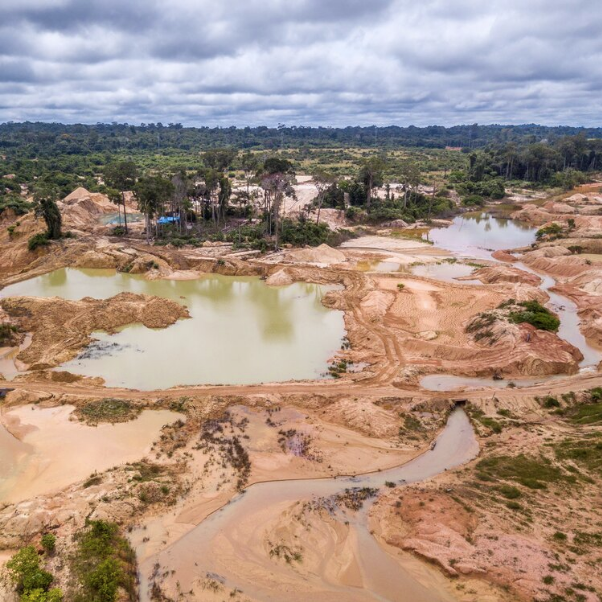Heidi, Alicia, and Ayana break through the limits imposed by dominant languages, and invite radical freedom of expression to enrich our unique identities, experiences, our relationships with each other and with the earth.
Read MoreAyana and Pádraig explore the language of uncommon belonging; how we must learn from our shame and the danger of forgetting history, the life cycle of violence, the nature of colonial power, and how to confront the inheritance of privilege.
Read MoreJoin us as Tara, Ruth, and Ayana navigate the worlds of man camps and resistance movements, track money trails, meet face to face with European banking leaders, and enter the boardrooms of America’s wealthiest shareholder meetings.
Read MoreThis week’s episode seeks to shed light on the ongoing, urgent crisis of Missing and Murdered Indigenous Women and Girls or MMIWG that remains largely invisible in public life and mainstream media.
Read MoreIn the Northern Marianas, communities are resisting a future in which aerial bombardments become the norm, where amphibious-assault trainings sever communities from key fishing grounds and decimate aquatic ecosystems, and shelling, artillery, and mortars destroy sacred land.
Read MoreThis episode is a call to the human heart. The impassioned Kurt Russo, speaking on behalf of the qwe 'lhol mechen, is one that will imprint itself on your memory as a cold hard look into the mirror of humanity.
Read MoreLyla June retraces the origins of oppression of European women, men and earth-based cultures through to recent histories of genocide, inter-generational trauma, and the enduring forces that seek to destroy Indigenous women and the earth and more …
Read Morejohn and Ayana explore the frameworks of “othering and belonging” and "targeted universalism," as well as ideologies of supremacy, global dislocation, rethinking citizenship, and lastly, how we can co-create shared visions and practices of humanity that bring us back into belonging.
Read MoreEriel articulates how narratives that surround the developments at Unist’ot’en Camp show how colonization has deeply warped our perspective on who get labeled the heroes and villains. While the state continues to prioritize the protection and expansion of infrastructure over people, we must encourage each other to see with clear vision where the true threat lies.
Read MoreDr. Nobre clarifies the complexities surrounding the driving factors of deforestation and savannization and discusses the margins of safety that must be implemented, the simultaneous rise of nationalism, and the possibility of a third way outside the realms of the preservation/consumption binary when it comes to Amazonia.
Read MoreExplore ancestral legacies around birthing, how we can invest in reproductive rights outside of the current hetero-patriarchal capitalist white supremacist system, the womb space as a place of creation, and birthing support as a human right.
Read MoreJoin So and Pinar as they explore how tracking and trailing answer the call of our ancestral bodies and the land, what deep intimacy with the more than human world looks like, how place-based skills are tools of liberation, and how to heal community, we cannot solely be in reciprocal relationships, we must be in accountable ones as well.
Read MoreJoin Ayana and Dallas Goldtooth in conversation about toxic masculinity, accountability, and dismantling patriarchy as a decolonial approach.
Read MoreWe meet with Zayaan Khan to discuss water scarcity in South Africa and a point of no return at which culture can change rapidly. Suddenly people become accustomed to the unthinkable —no showering! no laundry!— and they begin to ask, how could we have ever been so wasteful, so indulgent?
Read MoreWith Zayaan, we trace the ways that the white colonization of South Africa not only destroyed the complexities of the human-to-land relationship, but also continues to ignore the intricacies and connectivity of the landscape and how South Africa is still living within the echo chamber of a shockingly repressive colonial system
Read MoreTheresa Two Bulls is an attorney, prosecutor and politician in the United States and the Oglala Sioux Tribe. In 2004 she was elected to the South Dakota Senate, the first Indigenous woman to be elected to the state legislature
Read MoreLyla June retraces the origins of oppression of European women, men and earth-based cultures through to recent histories of genocide, inter-generational trauma, and the enduring forces that seek to destroy Indigenous women and the earth.
Read MoreLyla June was raised in Taos, New Mexico and is a descendent of Diné (Navajo) and Tsétsêhéstâhese (Cheyenne) lineages. Her personal mission in life is to grow closer to Creator by learning how to love deeper.
Read MoreLeila Darwish is a community organizer, author, permaculture designer, educator, urban gardener, and grassroots herbalist with a deep commitment to environmental justice, decolonization, food sovereignty, and to providing accessible and transformative tools for communities
Read More


















